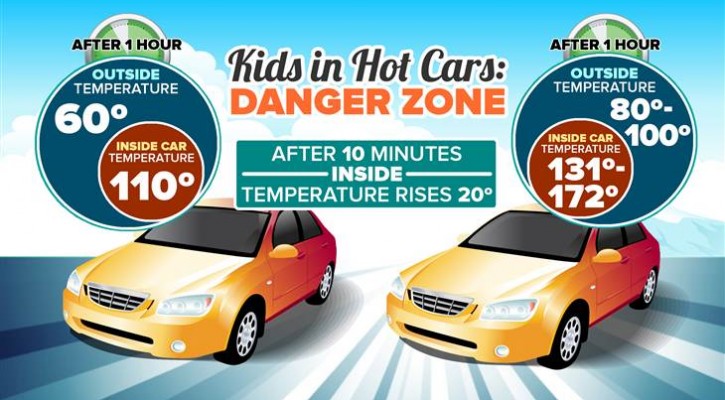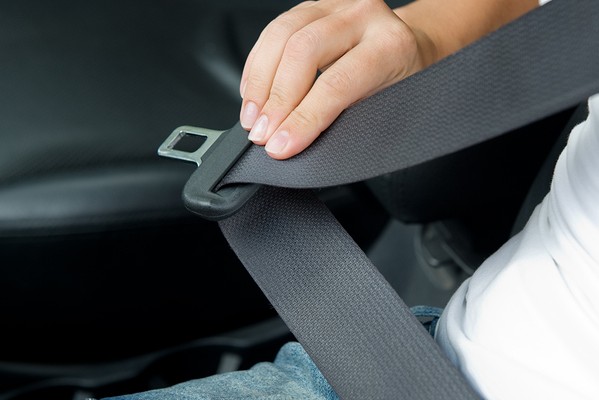
Ask the Traffic School Instructor: Re-taking The Driving Test
July 15, 2014
Question: Wouldn’t it be a good idea for drivers to have to take a new driving test every few years?
Answer: That sounds like a good idea and I would personally be all for it but we have to take a look at the number of people who actually receive a ticket for traffic violations and the impact that would have on the DMV.
Looking at the state of Florida, the figures from the Florida Department of Highway Safety and Motor Vehicles show that there were 2,243,984 non-criminal moving violations issued in 2013. That sounds like a lot, and it is, but there were 15,417,032 licensed drivers in the state of Florida in 2013. That means that moving violation tickets were issued to only 14.5% of the total number of licensed drivers in the state. Even if we included all of the criminal violations (Ex: reckless driving, DUI, racing) and the non-moving violations (Ex: parking tickets, failure to wear a seat belt) the grand total would be 3,915,310 violations or 25% of Florida licensed drivers.
The figures don’t show how many of those tickets were issued to the millions of tourists who visit the state each year so that reduces the total percentage of Florida licensed drivers who receive a ticket even further.The figures above mean that 75% of the licensed drivers in the state are apparently driving safely and obeying the traffic laws each year.
For anyone who has waited in line at the DMV, imagine how long the wait would be if all drivers had to re-test every few years and how many more driver license examiners we would need to hire to cover the increased workload.
The fact is that most people who receive a ticket in any state are well aware that they were violating the law at the time. Whether it’s speeding, running a red light, or making an illegal U-turn, those actions require a conscious effort on the part of the driver. We have discussed many times that there is no such thing as an automobile accident. Accidents are something we have no control over. In a car crash, one or more drivers make a poor (conscious) choice that leads to the crash and it was no accident.
Instead of re-testing every few years, a good idea for all drivers is to take a refresher driving safety course. Not only will these courses refresh your memory on the driving rules, they can also inform you of newly passed traffic laws you may not be aware of. Taking a course, whether online or in a classroom, can help you to refocus on the driving environment and strengthen your resolve to be a safer driver. Also, depending on your insurance carrier, it may lower your insurance rates.

New Tennessee Law Allows Rescuers To Break Car Windows
July 10, 2014
According to the web site kidsandcars.org sixteen children have died from heatstroke after being left alone in hot cars in 2014. Under a new law passed by the Tennessee legislature, anyone who has a good faith belief that their actions will save a child left alone in a hot car, won’t be held liable for smashing a window to rescue the child. Read more: What should you do if you see a child in a hot car?
Image from: NBC Today Show

Ask the Traffic School Instructor: Seat Belt Entrapment
July 8, 2014
Question: I know that you are supposed to wear a seat belt but I’m afraid of being trapped in my car if it should catch fire or go into the water. Are my fears real?
Answer: First off, I would never say anyone’s fears aren’t real. They are your fears so they are valid to you. Instead, let’s take a look at the reality of being trapped by a seat belt.
According to the National Highway Traffic Safety Administration, the type of crash you are imagining happens in less than one-half of one percent of all crashes. If we could plan our driving habits based on the type of crash we were going to have, then we could probably, just as easily, plan not to have a crash to begin with. But, for the sake of discussion, let’s assume you were one of the one-half of one percent involved in a crash into water or one that caused your vehicle to catch fire. What could happen to you if you weren’t wearing a seat belt?
Whether you crash into another vehicle or into water, your unbelted body will have no choice but to obey the laws of physics and continue traveling at whatever speed the car was traveling before the crash. That means your body will smash into the steering wheel at say 35 or 45 mph. Even in a relatively low speed crash at 25 mph, a small woman weighing 115 pounds will strike the steering wheel with a force of 2,404 lbs. If your car tumbles or spins out, your unbelted body will be thrown around inside the vehicle and you’ll probably have multiple impact points before coming to rest. Even if you’re still conscious after going through that sort of trauma, you probably won’t be in any shape to escape the vehicle.
No matter what type of crash or how violent it may be, you’re always better off securely fastened in place until the vehicle comes to a stop. By remaining fastened in, your chances of remaining conscious and healthy enough to effect an escape from the vehicle are tremendously increased.
As far as being trapped by the seat belt itself, mechanically, there’s nothing simpler than a seat belt latch. There is just one simple button to push and the probability of such a simple mechanism failing is astronomically small.
May I suggest, instead of fearing the consequences of wearing a seat belt, that you turn that around into a fear of the consequences of not wearing a seat belt.
Innovative Road Signs Slow Drivers
July 3, 2014
Drivers tend to ignore warning signs posted by the road so new, trickier methods are called for. By using forced perspective paintings of children in the street, life-size cardboard cutout policemen, and stripes painted across the road that make drivers think they are going faster than they really are, traffic safety experts around the world are becoming more creative in their methods to warn drivers to slow down. Read more: The road design tricks that make us drive safer

Fourth Of July Deadly For Drivers
July 2, 2014
According to the Insurance Institute for Highway Safety (IIHS) the Fourth of July is the deadliest day of the year for American drivers. Looking at data from 1986 through 2002, the IIHS determined that an average of 161 people die each year on the 4th. That’s 12 more deaths than average on any other single day of the year. Read more: More crash deaths occur on 4th of July than any other day
